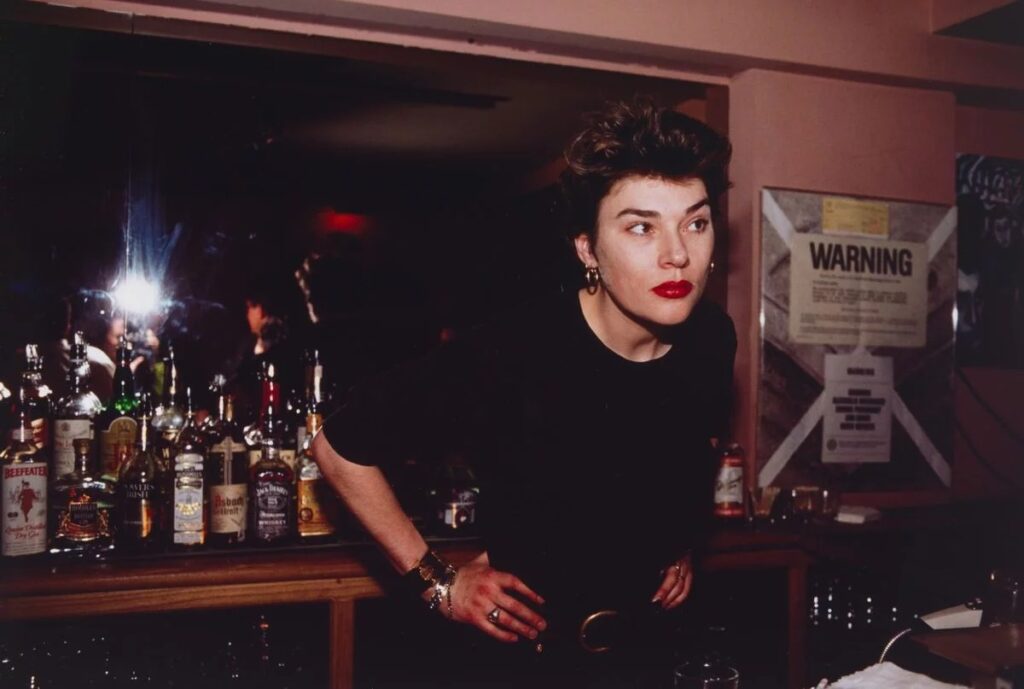Black Quantum Futurism are a Philadelphia-based collective seeking social justice through an unorthodox combination of science, poetry and sound. This week, interdisciplinary artist Moor Mother, née Camae Ayewa, and writer-activist Rasheedah Phillips are bringing their cutting-edge Afrofuturist vision to Australia for the first time.
Moor Mother and Phillips will appear at Newport’s historic Substation for a night of politically charged, genre-defying musical performance and experimental poetry. “It’s going to be political,” Moor Mother says. “It’s going to be intense, it’s going to be dancey, it’s going to be inspiring, uplifting, fire-starting.”
Moor Mother will perform material from 2016’s Fetish Bones, an album that drew notice from critics for its palpable grounding in history and its confrontational and uncompromising approach. Moor Mother’s durational performance piece, ‘14 Hours’, which critiqued domestic and sexual violence from a radical standpoint, helped cement her status as a highly relevant creative force.
Moor Mother will be supported at by radical and emerging Melbourne acts including hip-hop duo Kandere, Fjorn Butler’s solo noise project Papaphilia, Yorta Yorta song carrier Neil Morris, DJ Sezzo Snot, intersectional feminist Pauline Vetuna and cultural facilitator Bigoa Chuol.
Black Quantum Futurism also brought a battery of workshops honed in the US to enable community activists to develop practical skill sets to oppose gentrification and other social afflictions. The pair have just come from MOFO Arts Festival in Berriedale, Tasmania, where Moor Mother and Phillips headed up an instructional session on what they term ‘DIY time travel’.
“DIY time travel just thinks about how we time travel in everyday life through the use of crystals, mirrors and light, and thinking about how these things interact to shift time or to construct time,” Phillips says. “For example, you can think about crystals inside of watches and how that works, and how crystals intercept light.”
Phillips grew an interest in quantum physics and time travel when reading Fritjof Capra’s 1975 book The Tao of Physics, which endeavoured to draw a connection between Eastern mystical traditions and then-current Western scientific understanding. The theoretical framework of Black Quantum Futurism combines Capra’s rigorous approach with an Afro-centric perspective.
Black Quantum Futurism’s DIY time travel workshop combines lecture and activities to explore how discoveries in quantum physics confirm non-Western models of space-time.
“It’s about the history of linear time and the history of the future,” Phillips says. “We talk about our theory of temporality and how we construct temporality, which is thinking about quantum physics and African Indigenous space-time concepts.”
MOFO also played host to ‘Anthropology of Consciousness’, an interactive poetry walk through Berriedale designed to cultivate a perception of a location’s past and future and to develop other practical skills for circumventing existing hierarchies. “It’s about being able to sharpen the skills of feeling an event and doing a vibrational history reading of places,” Moor Mother says.
Though Moor Mother’s music and performances are principally informed by the historical and present struggles of black Americans, she says they are also relevant to Indigenous Australians and other marginalised Australian groups. “To me, it’s a lot of the same things that have been going on all over the world, especially in America,” Moor Mother says. “It mirrors it a lot.”
After their Melbourne performance, Black Quantum Futurism will return to their normal work as activists, artists and workshop organisers in the United States. The collective also plans to release a new book, Community Futurism, this year.
In the meantime, Australians should study to gain a greater understanding of Black Quantum Futurism, says Moor Mother.
“People should definitely study Afro-centrism,” she says. “People should definitely read books on memory and the books that we wrote from Black Quantum Futurism. Physics is the study of the small parts that make a whole. We’re talking about systems of oppression. It’s not just one huge system. It’s a wave, it’s a spiral, it’s a ripple effect, so we just look at these principles and apply it to everyday life, to explain how, in our own communities, time can be oppressive.”







